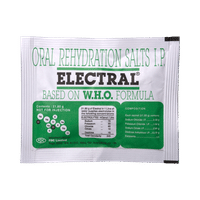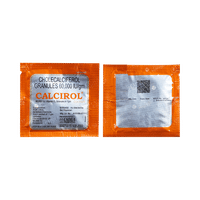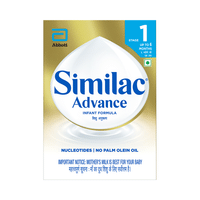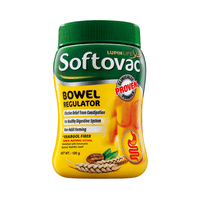food interaction for Thiotrac Plus
alcohol interaction for Thiotrac Plus
pregnancy interaction for Thiotrac Plus
lactation interaction for Thiotrac Plus
food
alcohol
pregnancy
lactation
Thiotrac Plus 10mg/5mg/200mg Tablet may be taken with or without food, but it is better to take it at a fixed time.
None
None
CAUTION
Caution is advised when consuming alcohol with Thiotrac Plus 10mg/5mg/200mg Tablet. Please consult your doctor.
CAUTION
Information regarding the use of Thiotrac Plus 10mg/5mg/200mg Tablet during pregnancy is not available. Please consult your doctor.
CONSULT YOUR DOCTOR
Information regarding the use of Thiotrac Plus 10mg/5mg/200mg Tablet during breastfeeding is not available. Please consult your doctor.
CONSULT YOUR DOCTOR
SALT INFORMATION FOR Thiotrac Plus
Montelukast(10mg)
Uses
Montelukast is used to prevent asthma prevention, sneezing and runny nose due to allergies, nasal allergy symptoms and exercise-induced asthma.
How it works
Montelukast works by blocking the action of leukotriene, a chemical messenger. This reduces inflammation in the airways to prevent asthma and relieve symptoms of allergies.
Common side effects
Headache, Diarrhea, Abdominal pain, Fatigue, Fever, Joint pain, Upper respiratory tract infection, Dizziness, Drowsiness, Muscle pain, Behavioral changes, Hypersensitivity, Increased bleeding tendency, Angioedema (swelling of deeper layers of skin), Suicidal thoughts, Churg-Strauss syndrome
Levocetirizine(5mg)
Uses
Levocetirizine is used in the treatment of allergic eye disease, nasal allergy symptoms, allergic conditions, sneezing and runny nose due to allergies and allergic skin conditions.
How it works
Levocetirizine is an antihistaminic medication. It treats allergy symptoms such as itching, swelling, and rashes by blocking the effects of a chemical messenger (histamine) in the body.
Common side effects
Sleepiness, Fatigue, Dryness in mouth, Headache, Vomiting, Abdominal pain, Nasopharyngitis (inflammation of the throat and nasal passages), Weakness, Hypersensitivity, Increased appetite, Vertigo, Convulsion
Acebrophylline(200mg)
Uses
Acebrophylline is used in the treatment and prevention of asthma and chronic obstructive pulmonary disease.
How it works
Acebrophylline is a mucolytic and bronchodilator. It works by relaxing the muscles of the airways and also thins and loosens mucus, making it easier to breathe.
Common side effects
Headache, Nausea, Vomiting, Diarrhea, Constipation, Heartburn, Loss of appetite, Rash, Itching, Drowsiness, Red spots or bumps, Breathing problems, Increased white blood cell count, Abdominal discomfort, Abdominal distension, Esophageal bleeding, Nasal inflammation, Dizziness, Fever, Chills, Numbness, Insomnia (difficulty in sleeping), Tachycardia, Fatigue, High blood pressure, Albumin in urine, Glycosuria, Hypotension (low blood pressure), Increased glucose level in blood
SUBSTITUTES FOR Thiotrac Plus
47 Substitutes
47 Substitutes
Sorted By
 Rs. 182.81pay 9% more per Tablet
Rs. 182.81pay 9% more per Tablet Rs. 157.50pay 2% more per Tablet
Rs. 157.50pay 2% more per Tablet Rs. 196.88pay 27% more per Tablet
Rs. 196.88pay 27% more per Tablet Rs. 159.38pay 3% more per Tablet
Rs. 159.38pay 3% more per Tablet Rs. 187.50pay 21% more per Tablet
Rs. 187.50pay 21% more per Tablet
Expert advice FOR Thiotrac Plus
- You have been prescribed Montelukast for asthma prevention and for the treatment of allergy symptoms such as sneezing and runny nose.
- It is a relatively safe medicine with very few side effects.
- Take Montelukast 2 hours before exercising if you have exercise-induced asthma.
- It does not work right away and should not be used to relieve sudden breathing problems. Use your rescue inhaler to control sudden difficulty in breathing.
- Do not discontinue use without consulting your doctor, even if you feel better.
- You have been prescribed Montelukast for asthma prevention and for the treatment of allergy symptoms such as sneezing and runny nose.
- Take it in the evening for better control of asthma or allergy symptoms.
- It is a relatively safe medicine with very few side effects.
- Take Montelukast 2 hours before exercising if you have exercise-induced asthma.
- It does not work right away and should not be used to relieve sudden breathing problems. Use your rescue inhaler to control sudden difficulty in breathing.
- Do not discontinue use without consulting your doctor, even if you feel better.
Frequently asked questions FOR Thiotrac Plus
Montelukast
Q. Why do you have to take Montelukast at night?
Usually, it is recommended to take Montelukast in the evening when it is being used for asthma and allergic rhinitis (cough and cold due to allergy). However, the exact reason for this is not yet known. Some studies have shown that there is no difference in effectiveness whether Montelukast is taken in the evening or morning. Hence, take the medicine as directed by your doctor.
Q. Is Montelukast a steroid?
No, Montelukast is not a steroid. It is a leukotriene blocker. Leukotrienes are natural substances released during an allergic reaction which causes constriction of muscles of airway. It can also cause allergy symptoms. This medicine blocks leukotrienes which helps in relieving symptoms of asthma and allergic rhinitis.
Q. Does Montelukast make you drowsy?
An uncommon side effect of Montelukast is drowsiness. It can also cause dizziness. Avoid driving or operating heavy machinery until you know how the medicine affects you. Consult your doctor if you experience these side effects.
Levocetirizine
Q. Is Levocetirizine a steroid? What is it used for?
No, Levocetirizine is not a steroid. It is an anti-allergic medication which is used to relieve the symptoms of allergy. It relieves runny nose, sneezing and redness, itching and watering of the eyes caused by hay fever or seasonal allergies. It also relieves similar symptoms caused due to allergies to substances, such as dust mites, animal dander and mold. Additionally, it is helpful in treating symptoms of hives, including itching and rash.
Q. Does Levocetirizine make you tired and drowsy?
Yes, Levocetirizine can make you feel tired, sleepy and weak. If you have these symptoms, avoid driving or operating heavy machinery. Consult your doctor if not sure.
Q. How long does it take for Levocetirizine to work?
Levocetirizine starts working and showing improvement within an hour of taking it. However, it may take a little longer to notice the full benefits.
Acebrophylline
Q. When should Acebrophylline be avoided?
Acebrophylline should be avoided in patients who are allergic to ambroxol, Acebrophylline, or theophylline. Along with that, patients suffering from low blood pressure, irregular heart beats or rhythm or history of heart attack, liver disease or kidney disorder should avoid taking Acebrophylline.
Q. How should Acebrophylline be taken?
Acebrophylline should be taken strictly as advised by the doctor. To avoid an upset stomach it should be taken with food.
Q. Is it okay to take furosemide along with Acebrophylline?
One should take proper caution if you are taking furosemide along with Acebrophylline. This is because the combined use of these medicines may decrease the levels of potassium. Hence, regular monitoring of potassium levels is required.























